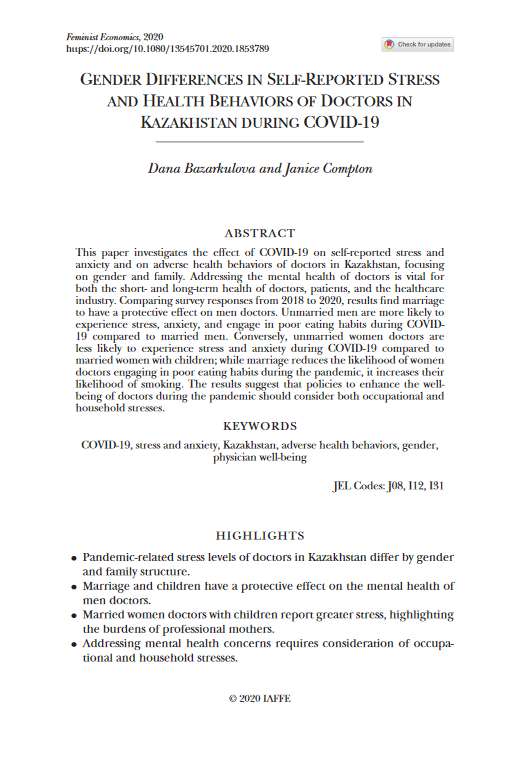This paper investigates the effect of COVID-19 on self-reported stress and anxiety and on adverse health behaviors of doctors in Kazakhstan, focusing on gender and family. Addressing the mental health of doctors is vital for both the short- and long-term health of doctors, patients, and the healthcare industry. Comparing survey responses from 2018 to 2020, results find marriage to have a protective effect on men doctors. Unmarried men are more likely to experience stress, anxiety, and engage in poor eating habits during COVID-19 compared to married men. Conversely, unmarried women doctors are less likely to experience stress and anxiety during COVID-19 compared to married women with children; while marriage reduces the likelihood of women doctors engaging in poor eating habits during the pandemic, it increases their likelihood of smoking. The results suggest that policies to enhance the well-being of doctors during the pandemic should consider both occupational and household stresses…
Bazarkulova, D., & Compton, J. (2021). Gender Differences in Self-Reported Stress and Health Behaviors of Doctors in Kazakhstan during COVID-19. Feminist Economics, 1-22.






